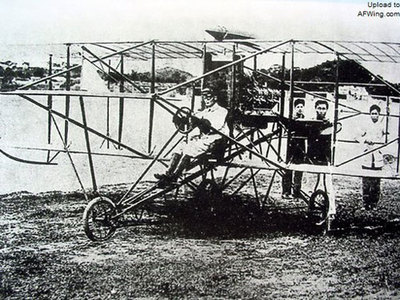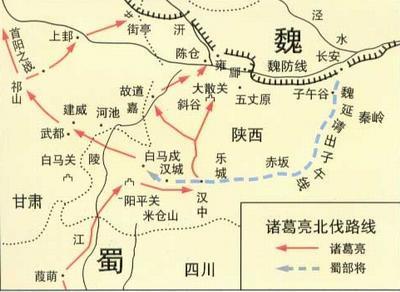今天小傻为砂糖们摘选了一篇发表在推特上的文章。作者是Zara Zhang,考入哈佛的萌妹子一枚。当文中的妹子千辛万苦来到哈佛却发现自己与身边的美国童鞋的家世、生活环境隔着几个太平洋的距离以后,那是什么样的心情呢?
下面小傻就用粗略的译文与砂糖们分享下~PS:嫌弃翻译差的砂糖直接去看原文= =
在中国,人们叫我“哈佛学生”,在哈佛,人们叫我“中国女孩”。我像是过了两个人生,但是无论我在哪里,祖国还是我的牵挂。
2013年8月,当我踏入哈佛的新生宿舍,第一次那么强烈地感觉到我和哈佛同学是那么的不同。
我的室友来自纽约,她的父母陪她一起来,一次性带来了我需要搬好几趟的东西,包括两台台灯和一台打印机。
然后也是第一次我意识到,我的很多美国同学事实上离哈佛很近,父母们也乐此不疲地开车载着孩子和大量的行李入校。
而我,跨越6393英里,经过两个中转站,还要倒12个小时的时差。没有父母,两个行李箱,事实上,这不仅仅是我第一次踏入哈佛校园,也是我第一次到美国。
后来我发现室友的爸爸妈妈、爷爷奶奶都毕业于哈佛,她可以向来自哈佛商学院的父亲求助完成她的经济学论文。我的父母没有来过美国,不说英语,我的爷爷奶奶没有读过书。
搬进来没几天,我的室友就忙着跟相识多年的来自纽约的一大堆朋友相约出去玩。
我却只是在课堂上认识了一起考入哈佛的四个来自北京的学生,也只是在慢慢消化吸收“出去玩”这个概念,因为在中国或者在我的新加坡高中,我们被灌输的只有学习。
慢慢地,我开始接受哈佛课堂上学生的差异性,也对拿着全额助学金家里第一代考入哈佛的学生和那些姓氏被刻在标志性建筑(家里已经几代上过哈佛并且家族在哈佛有一定成就)的学生肩并肩坐在一起上课习以为常。
很多人一生中并没有这样的机会,能够和跟自己如此不同的人相遇,于我,能够和这样多样性的同龄人邂逅也是十分难得的。但置身于这样千变万化的环境,不同程度上,每个人多多少少会不舒服。
大学里没有哪两个人的起跑线完全相同,但是每个人可以决定他的终点在哪里。
我们中间,有些人家里几代都已经在哈佛受过教育,他们的成长把进入哈佛作为目标;有些人,是进入哈佛的第一代,他们是移民的后代,一直都在为进入之前从未想象过的学府而努力,这是他们的美国梦;还有一类人,像我一样的第零代,我们本身就是移民,在一个陌生的国家开启新生活,适应它的文化和它的国民(有时候想想我的孩子不必再做第零代会给我安慰)。
上述群体的每个人都有他们自己的特权和劣势,但是当你要全面了解和评估我们自己的大学生活经历的时候,把事情看透是非常重要的。
我们当中的很多人(特别是来自亚洲的)成长环境已经习惯于与别人作比较,这样的比较可能在小学和中学是正当的,那时我们和我们的同学大多来自同一个城市或是本身就是邻居。
但这在多样性的美国大学校园是不恰当的,也是不建议的。
“调整适应”对于从小在新英格兰私立学校长大的学生和来美后第一个分清楚私立和公立学校的学生是不同的概念。
我的生命中,有好多次,我被从我的舒适区域连根拔起,转移到一个完全陌生的环境里,这些阶段的调整常常带给我很多反省和自我怀疑。
为什么每个人都如此不同?为什么与每个人走得近都这么难?我有什么问题吗?
慢慢地,我学会保持自信的技巧,就是相信你自己是没有问题的。没有一个人生来就处于一个刚刚好的位置,有一个刚刚好的背景环境。因为我已经竭尽全力保持积极向上和友好的为人处事,那么就是拒绝跟我做朋友的那些人的问题了。
做第零代有它的额外津贴:我可以完完全全从一个新鲜人的角度来看待美国社会,每天每天,我学新单词,新的概念,美式幽默的新规则。
生活给我一些状况,我尽情享受适应它们带来的挑战,这是我一生致力于做的事情。
原文如下:
@Zara Zhang
I first realized how different I was from my classmates at Harvard when I moved into my freshman dorm in August 2013. My roommate from New York, whose parents helped her with moving in, brought many times the things I did, including two lamps and a printer. It then occurred to me, for the first time, that many of my American classmates in fact live only a couple dozens of miles away from Harvard, and it is the norm for parents to drive students here with their bountiful possessions.
On the other hand, had come 6,393 miles punctuated by two layovers, and was still suffering from the jet lag caused by the 12-hour time difference. All I was able to bring on this parentless, trans-Atlantic journey were two suitcases. It was my first time stepping foot on not only Harvard campus, but also American soil.
I later found out that both of my roommate’s parents graduated from Harvard College. So did her grandparents. My roommate could call her father, who also graduated from Harvard Business School, for help on an Economics essay. My own parents do not speak English, have never been to America, and my grandparents were illiterate.
A few days after move-in, my roommate was already busy making plans to go out with her group of friends from New York that she has known for years. I had only briefly met four of my classmates at a gathering for admitted Chinese students in Beijing, and was just slowly beginning to grasp the concept of “going out”—there was no such thing in China or in my Singapore high school where all we knew was “mugging” (Singlish for “studying”).
Slowly, I came to appreciate the extent of diversity that a Harvard class represents. Students whose last names are etched on building signs sit side by side with students on full financial aid who are the first generation in their families to attend college.
Most people in the world don’t have a chance to meet people who are significantly different from themselves their whole lives, and it is a unique privilege to be able to learn with and learn from such a diverse group of peers. But when placed at such a kaleidoscopic environment, everyone is, to various degrees, out of their comfort zone.
College is a place where no two persons set off at the exact same starting line, but everyone is free to determine where they finish. There are those of us who started several generations ago, who grew up knowing that one day they would end up at this place that educated their forebears. There are others who started as the first generation: many of them are children of immigrants who completed their families’ American Dream by being admitted to a place that they never imagined they could get into. Then there are those of us who are the zeroth generation: we are the immigrants themselves, starting a new life in a new country, adapting to its culture and people every day (It gives me comfort to think that at least my children will not be the zeroth generation).

Every one of the above groups has their own privileges and disadvantages, but it is important to put things into perspective when trying to understand and evaluate our own college experiences. Many of us (especially those from Asia) grew up with a habit of comparing ourselves to others. Such comparison may be valid in elementary or middle school, when most of our classmates were from the same city or neighborhood. But it is definitely not valid, and not recommended, for a place as diverse as an American college. “Adjustment” is not the same concept for someone who grew up attending New England private schools and someone who only learned of the differences between public and private schools after coming to America for the first time.
Throughout my life, there have been many times when I was uprooted from my comfort zone into an unfamiliar environment, and these phases of adjustment often lead to lots of self-questioning and self-doubt. Why is everyone so different? Why is it so hard to get close to anyone? Is there something wrong with me?
Slowly, I have learned that the trick of maintaining confidence is in believing that there’s nothing wrong with me. No one is born at the “right” place or from the “right” background. As long as I’m trying my best to maintain a positive outlook and a friendly disposition, then there is something wrong with the people who refuse to be my friends.
Being the zeroth generation has its perks: I can look at American society and culture from a fresh perspective, and every day I’m learning new words, new ideas, new rules of American humor. When life gives me new situations, I savor the challenge of adapting to them: it’s something I’ve been doing all my life.
 爱华网
爱华网



